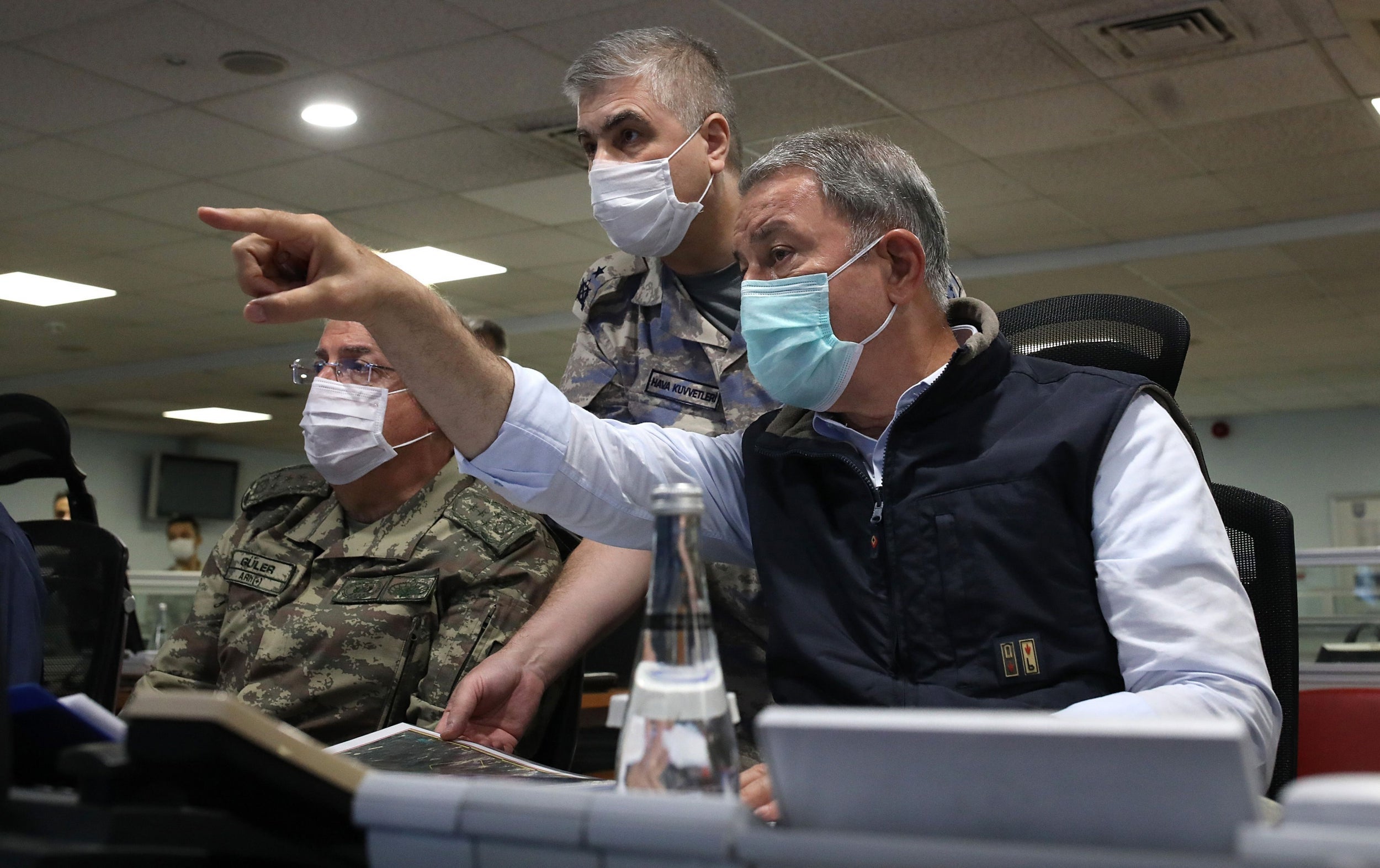Turkey launches ‘largest ever’ air raids against Kurdish fighters in Iraq

The Independent employs reporters around the world to bring you truly independent journalism. To support us, please consider a contribution.
Turkey launched a wave of airstrikes targeting positions of Kurdish rebels in northern Iraq, where the fighters have maintained presence for decades.
The Turkish military said on Monday it had destroyed 81 shelters and bunkers belonging to the Kurdistan Workers Party (PKK) in Iraq’s Qandil mountains and positions along the borders of Turkey and northeast Syria in what it has dubbed “Operation Eagle Claw.”
“Our planes are bringing the caves down on the terrorists’ heads,” the Turkey’s Defence Ministry said on its Twitter page.
Download the new Independent Premium app Sharing the full story, not just the headlines
Numbers of dead and wounded remained unclear. A local official in the town of Sinjar said three members of a PKK-affiliated group were wounded in the strikes.
“The fact that no universally recognised group controls and administers the Sinjar area adequately, and years of neglect from Baghdad, leaves the small PKK-aligned forces there open to bombing by Turkey with practical impunity,” said Patrick Osgood, an Iraq specialist at Control Risks, a security consulting firm.
Video showed what a local described as a refugee camp on fire near the northern Iraqi town of Makhmour, an alleged result of the airstrikes. An official at the camp, which houses an estimated 12,000 Turkish citizens considered supporters of the PKK, told the Rudaw news agency that the airstrikes targeted positions near the camp and rendered several children unconscious, but there were no reports of any dead or wounded civilians.
Turkey has over the decades regularly launched airstrikes targeting PKK positions in northern Iraq but rarely with such intensity, across such a broad swath of territory and with scores of targets.
“Last night’s operation was the largest ever [in Iraq],” said Selami Haktan, a Turkish journalist specialising in military affairs. He described 81 targets hit by at least 25 F-16 fighter jets and an unknown number of drones.
Tensions between Ankara and the formidable guerilla organisation – listed as a terrorist organisation by Turkey, the United States and the European Union – have ebbed and flowed over the decades.
Mr Haktan described this as a as a preemptive offensive ahead of an anticipated wave of Kurdish attacks.
Daily coronavirus briefing No hype, just the advice and analysis you need Enter your email address Continue Continue Please enter an email address Email address is invalid Fill out this field Email address is invalid Email already exists. Log in to update your newsletter preferences Register with your social account or click here to log in I would like to receive morning headlines Monday – Friday plus breaking news alerts by email Update newsletter preferences
“The Turkish Army’s operation targeting the PKK last night was in retaliation for the PKK’s decision that it will increase its activities on the Turkish soil,” said Mr Haktan. “The PKK has been attacking the Turkish border forces for a while. We all knew that the PKK was in massive preparation, and waiting for its time to cross the borders.”
The offensive comes at a time when Turkey has shown an increasing willingness to use its formidable armed forces to pursue international goals. In recent weeks, Turkish military support has turned the tide in the war in Libya in favour of the internationally recognised government in Tripoli. Using artillery, air power and allied ground forces, it has kept in check a Russian-backed offensive to bring northwest Syria under the control of the Damascus regime of Bashar al-Assad.
Though potentially risky, the military operations play well among Turkish nationalists and ramp up the profile of Turkey’s arms industry, which exported $3 billion worth of weapons last year.
“Although their returns in terms of popularity boosts for the government have decreased with time, there is no major constraint on these actions,” said George Dyson, an analyst at Control Risks. “What’s more, the use of domestically produced defence technology in these and other operations serves as advertising for the country’s defence industry.”
The attacks also potentially add to Iraq’s woes. Authorities in the Kurdish-led semi-autonomous north are grappling with the aftermath of an Isis attack on Saturday near the city of Khanaqin, just to the south of Iraqi Kurdistan, which left at least seven people dead.
The PKK and affiliated groups in Syria and Iraq were a key component in the five-year western-backed war to destroy Isis’s self-proclaimed Caliphate, and many security analysts fear a resurgence of the group.
The Turkish campaign, if it continues, could bring pressure on the country’s newly named Prime Minister Mustafa al-Kadhimi. “He is consumed with several domestic crises, potentially a reason for Turkey to test the attitude of Iraq’s new administration with this new operation,” said Mr Osgood.
The strike coincides with rising tensions between Turkish Kurds and the government in Ankara, which has removed from office a number of elected officials affiliated with the Kurdish-led People’s Democratic Party (HDP), a political cousin of the PKK. A protest march is to take place in Ankara today.
Operation Eagle Claw was also the name of the ill-fated 1980 attempt by US commandos to rescue hostages held at the American embassy in Tehran by Iranian revolutionaries.






